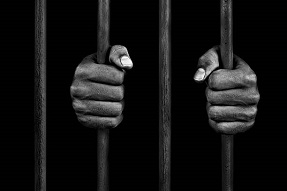
"There is no greater threat to a free and democratic nation than a government that fails to protect its citizen's freedom and liberty as aggressively as it pursues justice." - Bernard B. Kerik, From Jailer to Jailed: My Journey from Correction and Police Commissioner to Inmate #84888-054
Misconceptions about Criminal Justice and Policing
- The origins of modern-day policing can be traced back to the "Slave Patrol." The earliest slave patrol was created in the Carolinas in the early 1700s with the single mission to establish a system of terror and squash slave uprisings with the capacity to pursue, apprehend, and return runaway slaves to their owners.
- Since the Reconstruction Era, discriminatory criminal justice policies and practices have unjustifiably targeted black people. These include Black Codes, vagrancy laws, and convict leasing, all of which were used to continue post-slavery control over newly-freed people. Today, Black people make up only 13% of the U.S. population, but about 35% of all incarcerated Americans.
- Bias by decision makers at all stages of the justice process limits people of color. Studies have found that black people are more likely to be stopped by the police, detained pretrial, charged with more serious crimes, and sentenced more harshly than white people.
- The police reform movement is an attempt to correct built-in policies that disproportionately impact the poor and people of color. It would also remove police from domestic situations that would be better handled by medical professionals.
How to have a conversation about Criminal Justice Reform
- Consider the racial composition of the room. The conversation may need to be tailored differently if there are few, many, or no people of color involved. Larger audiences with mostly white participants may need more information and examples as the topic will likely be far removed from their experience.
- Connect the past to the present. Racism in the United States has a long and abhorrent history. When relevant, provide historical background to current incidents to provide perspective.
- Talk about structural racism and white privilege. The often unrecognized advantages, benefits, or rights conferred upon white people, white privilege, is an important concept when talking about racism. The flip side of white privilege is structural racism which oppresses and marginalizes people of color through societal institutions like education, law enforcement, voting, employment, and other systems.
- Leave on a message of hope and activism. As we discuss issues surrounding racial bias, it's important that we don't leave the audience with overwhelming feelings of despair. Many of these issues can be overcome through conversation, a shared understanding of the problem, and action.